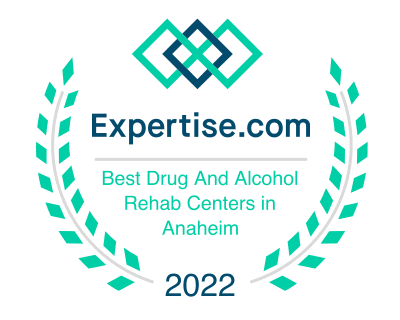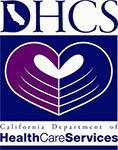Opioid Use Disorder (OUD) remains a critical issue in America, with millions grappling with its devastating impact. Understanding its intricacies and exploring advanced treatment options is essential for effective recovery.
Understanding Opioid Use Disorder
Opioid Use Disorder, a medical condition defined by the DSM-5, involves a pattern of opioid use leading to significant impairment or distress. This condition encompasses the misuse of both prescription painkillers, such as Percocet, Suboxone, and morphine, and illicit opioids like heroin and fentanyl. The diagnostic criteria include a range of symptoms from an inability to control opioid use to experiencing withdrawal symptoms. This complex disorder requires a multifaceted treatment approach to address both physical dependence and behavioral addiction.
Common Signs of OUD:
-
- Taking opioids in larger amounts or for longer than intended
- Persistent desire or unsuccessful efforts to control opioid use
- Spending a large amount of time obtaining, using, or recovering from opioids
- Craving for opioids
- Failing to fulfill major obligations at work or home due to opioid use
- Continued use despite opioid use causing social or interpersonal problems
- Giving up important social, work, or recreational activities
- Recurrent opioid use in situations where it is physically hazardous (e.g., driving)
- Continuing to use opioids despite knowing that they are making a medical or psychological problem worse
- Tolerance, characterized by needing more opioids to get the same effect
- Withdrawal symptoms when opioids are not available
Speak to an Opioid Detox Specialist
Beyond Traditional Approaches: Comprehensive Opioid Treatment Strategies
While many still consider 12-step programs a conventional approach, emerging scientific evidence advocates for more comprehensive treatment models that tackle both physical dependence and behavioral addiction symptoms.
Waismann Method®: Revolutionizing Opioid Addiction Treatment
Waismann Method® stands at the forefront of innovative treatment, blending medical detoxification with behavioral therapy. This approach starts with medically assisted detox to efficiently cleanse the body of opioids, followed by a supportive withdrawal process under medical supervision. The treatment transcends mere detoxification, incorporating behavioral therapy to address the underlying psychological aspects of addiction, such as cravings and emotional triggers.
The Pioneering Role of Rapid Detoxification in Opioid Recovery
At the heart of the Waismann Method® lies the innovative process of rapid detoxification, a procedure meticulously designed to accelerate the elimination of opioids from the brain’s receptors. This advanced treatment, conducted in a highly controlled hospital environment, underscores the commitment to patient safety and comfort. Integral to this method is round-the-clock medical monitoring, ensuring that each phase of detoxification is closely supervised by experts in the field.
Enhanced Safety and Personalized Care
The essence of rapid detoxification with the Waismann Method is not just in its ability to quickly cleanse the body of opioids, but also in the personalized care and attention given to each patient. The procedure is tailored to meet the individual’s unique health profile, taking into account their medical history, the duration and intensity of opioid use, and any co-occurring health conditions. This personalized approach significantly increases the likelihood of a successful detoxification, setting the stage for a healthier and more sustainable recovery journey.
Comprehensive Detoxification and Beyond
Our approach extends beyond mere detoxification. We recognize the importance of addressing the physical and psychological aspects of opioid dependence. By effectively eliminating physical cravings and facilitating the recovery of the nervous system, we provide our patients with a robust foundation for their recovery. This comprehensive care model not only removes opioids from the system but also initiates the process of healing and rebalancing, preparing the individual for the next critical steps in their journey toward complete recovery.
A Gateway to Long-Term Recovery
Rapid detoxification is just the beginning. It opens the door to a future where patients can engage more fully in subsequent therapeutic processes, such as behavioral therapy and counseling, which are vital for addressing the underlying causes of addiction. By starting the recovery process on a strong footing, patients are better positioned to tackle the challenges of long-term sobriety with confidence and resilience.
In conclusion, the rapid detoxification component of the Waismann Method® is a testament to our commitment to providing advanced, effective, and personalized treatment for opioid dependency. It’s a crucial step forward in the journey towards lasting recovery and a life free from opioid addiction.
The Integral Role of Post-Detox Recovery in Achieving Long-Term Sobriety
Detoxification marks the beginning of the recovery process. The post-detox phase is equally crucial as patients often return to environments laden with the same triggers that initially led to opioid misuse. Facilities like Domus Retreat offer tailored aftercare programs, focusing on both physiological and psychological recovery. These programs aim to address not only the direct effects of opioid withdrawal but also underlying mental health conditions, thereby laying a robust foundation for long-term recovery and well-being.
Schedule Your Free Consultation Today
Navigating the complexities of opioid addiction can be overwhelming, but you don’t have to face it alone. Understanding the right treatment path is crucial for a successful recovery. For personalized advice and to explore the full spectrum of treatment options available to you, we invite you to take the first step.
Contact our addiction specialists for a free, confidential consultation. During this session, you’ll receive expert guidance tailored to your unique situation, helping you make informed decisions about your journey to recovery.
Schedule Your Free Consultation Today
Navigating the complexities of opioid addiction can be overwhelming, but you don’t have to face it alone. Understanding the right treatment path is crucial for a successful recovery. For personalized advice and to explore the full spectrum of treatment options available to you, we invite you to take the first step.
Contact our addiction specialists for a free, confidential consultation. During this session, you’ll receive expert guidance tailored to your unique situation, helping you make informed decisions about your journey to recovery.
Sources:
- Assessing and Addressing Opioid Use Disorder (OUD)
- DSM-5 Diagnoses and New ICD-10-CM Codes
- Differentiating Dependence from Opioid Use Disorder
- Understanding the Functionality of Opioid Receptors
This article authored and reviewed by Clare Waismann, M-RAS, SUDCC II, Founder of Waismann Method Advanced Treatment for Opiate Dependence and Domus Retreat, is for informational purposes only and should not be considered medical advice or a recommendation. Consult a healthcare professional for guidance and treatment options. While we strive to maintain high editorial standards, please be aware that information may become outdated. Domus Retreat, its employees, agents, and associated individuals are not liable for any errors, omissions, or consequences resulting from the use of the information provided.







